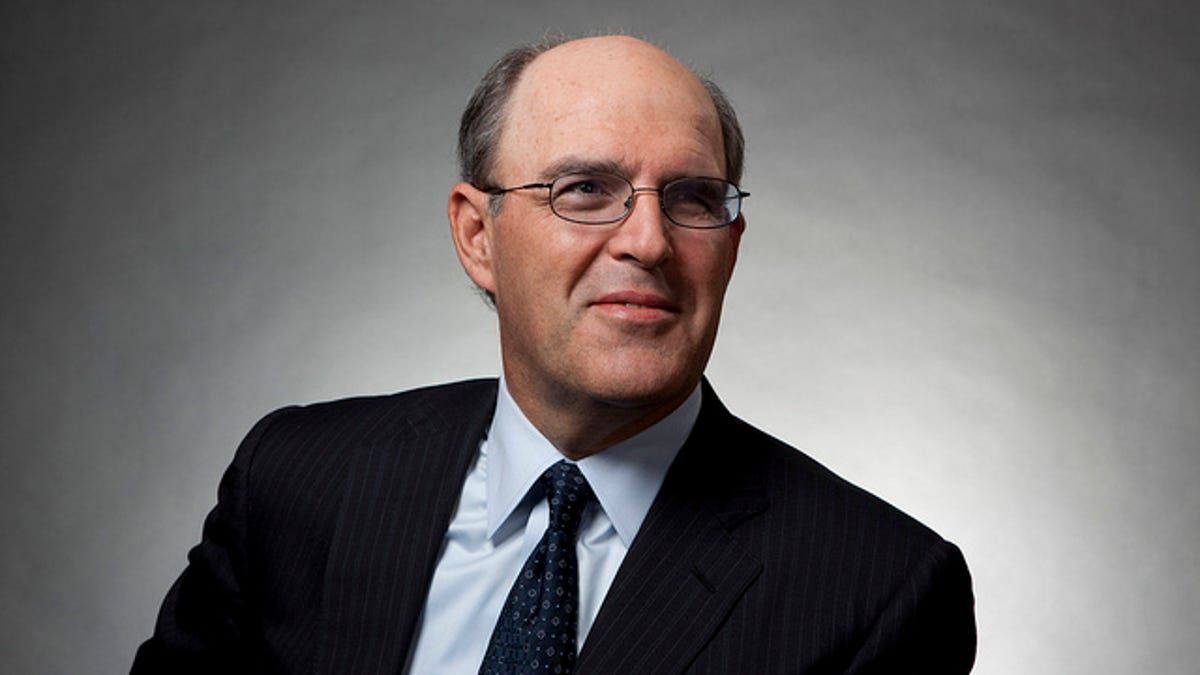Capellas-led coalition making strides by the Vblock
One year on, the Cisco Systems- and EMC-funded venture, which is focused on integrated computing "stacks" called Vblocks, reports progress to date.

What's in a Vblock? It's a cloudy mix onto which a very experienced CEO is shedding more light.
Michael Capellas, the former chief executive of Compaq, MCI, and First Data, and current CEO of Virtual Computing Environment (VCE) Coalition, updated industry analysts with VCE progress as of early December 2010, slightly more than a year after Cisco Systems and EMC announced the VCE joint venture, which integrates servers and networking gear from Cisco, storage and management software from EMC, and the VSphere virtual operating system of VMware into Vblocks.
While the VCE Coalition is a privately held entity funded mostly by EMC and Cisco, with lesser contributions from VMware and Intel (more on this in a minute), Capellas was able to share some interesting statistics with analysts:
- Number of current "major" customers: 65
Capellas stated that progress to date had greatly exceeded his expectations. While I agree that the pipeline is robust, the number of customers reported as of the close of the last fiscal quarter is a bit underwhelming, given the market reach of two industry giants. But then when one considers that the average Vblock sale is 2.5 million U.S. dollars, it becomes clearer that we're looking at big IT customers with lots of future buying power.
This update should be of interest to all who are tracking the progress of the concept of integrated computing appliances because it gives clues regarding the type of customer that is buying Vblocks and at what price. Even more interesting (to me, anyway) were some other aspects of the current state of the coalition Capellas shared with analysts.
First, Acadia Enterprises is gone. Acadia was a separate services organization funded by the coalition partners that provided Vblock implementation management services on the "BOT"--build, operate, and transfer--model. Acadia would step away from the engagement with the customer when the customer was ready to assume full operational and management responsibility of a Vblock installation. However, customers showed little interest in that implementation model. Acadia has been merged with VCE and no longer exists.
Second, the VCE financial model is now clearer. Capellas added detail to some areas regarding the financial structure of the VCE Coalition.
VCE most closely resembles a nonprofit organization in that it is totally funded by capital and equity contributions from the four coalition members. All revenue from Vblock sales and services is turned over to the partners based on their product contribution, i.e. EMC receives revenue for its storage and management software components, Cisco for its networking and server components, and so on. VCE does not, therefore, issue financial statements.
Capital is invested in VCE by the partners to do such things as pay salaries and maintain office infrastructure. Individual contributions to VCE are reported by each of the coalition members. It is also interesting to note that there is no exit strategy for VCE. VCE exists for the sole purpose of integrating, selling, and supporting Vblocks.
When VCE was first announced a year ago, I originally thought that midrange users would be more interested in the pre-integration aspect of the VCE Vblock. I was wrong. The more likely Vblock adopters are large IT organizations, and likely use cases include large VDI deployments and the establishment of private clouds.
However, I was also concerned that the success of--and, indeed, the very existence of--the coalition depended on the continued support of three powerful companies. I continue to have that concern. If either Cisco or EMC backs out, I assume the coalition would simply dissolve, as it exists solely to integrate and sell the partners' products. Support for existing Vblocks would then fall to the partners individually. This structure also helps explain why no Vblock component substitutions are allowed.
If the coalition were to dissolve, it would most likely happen as a result of a falling-out between the major partners--Cisco and EMC. While that seems unlikely at present, it can't be ruled out as a possibility. In that case, potential buyers must ask themselves what the worst-case scenario would be, if a dissolution came to pass.
The single source for Vblock support would disappear. However, each of the partners would be counted on to support their individual components. The only contingencies that would be adversely affected would be ones in which customers had contracted with the VCE Coalition for a future product or service deliverable. In that case, buyers are advised to designate one or a number of the partners to fulfill these types of commitments, should VCE dissolve.
I don't see a VCE dissolution in any way likely, at this point. The pipeline for Vblock is robust, and the Coalition is hiring (100 new employees per month). Rather, I see intensified competition from HP, IBM, NetApp, and Oracle, given the early success of VCE with large systems users. And speaking of HP, I have one curiosity to report.
During the call, Capellas referred to the Vblock as "converged infrastructure," a term that even appeared in the title to one of his slides. HP employees, some of whom probably at one time reported to Capells, are certainly familiar with CI. In fact, they may feel that HP invented CI.

